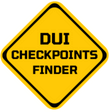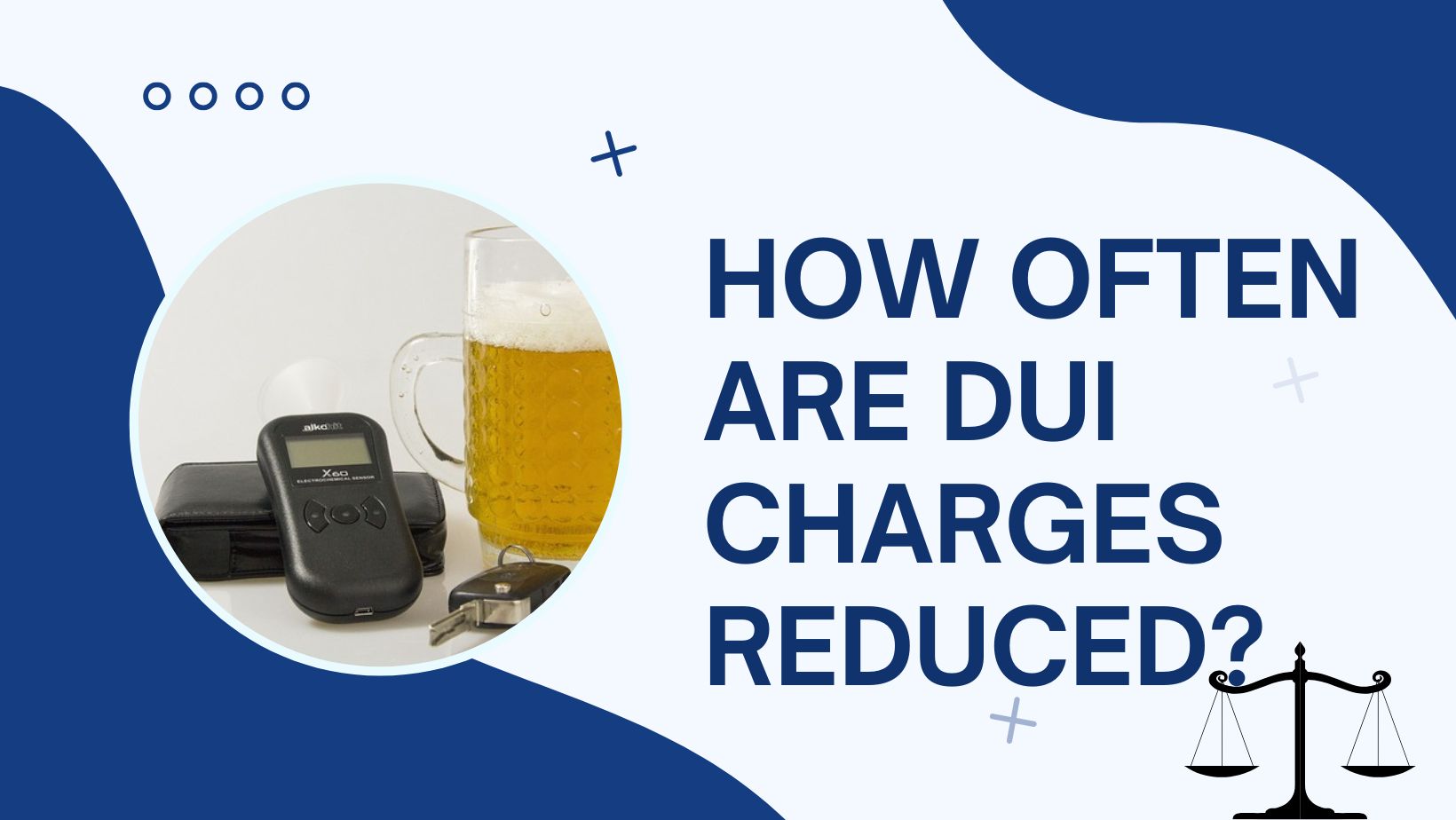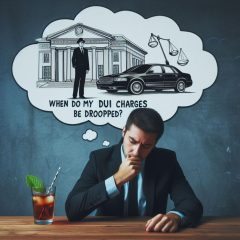I. What is DUI?
A. Defining DUI:
DUI, which stands for Driving Under the Influence, refers to the act of operating a motor vehicle while impaired by alcohol, drugs, or a combination of both. It is a serious offense that poses significant risks to public safety. In the United States, DUI is a criminal offense, and individuals found guilty of this offense can face various legal consequences.
B. DUI Laws in the USA:
DUI laws in the United States are primarily governed by state statutes, which means that the specifics of the laws can vary from one state to another. However, some common elements are prevalent throughout the country. For instance, most states have set a legal limit for blood alcohol content (BAC) level for drivers. This legal limit is typically 0.08%, which means that operating a vehicle with a BAC equal to or higher than 0.08% is considered illegal.
Additionally, states may have enhanced penalties for higher BAC levels, such as 0.15% or more. Moreover, some states impose stricter laws for underage drivers, commercial drivers, and repeat offenders. DUI laws also encompass impairment due to drugs, including both illegal substances and prescription medications that can affect a driver’s ability to operate a vehicle safely.
II. The Impact of DUI Convictions:
A. Legal Consequences: DUI convictions carry severe legal consequences that can vary depending on the circumstances of the offense and the jurisdiction. Some of the most common legal consequences include:
- License Suspension: One of the most immediate consequences of a DUI conviction is the suspension or revocation of the offender’s driver’s license. The duration of the suspension can vary from a few months to several years, depending on factors like BAC levels, prior offenses, and state laws.
- Fines and Penalties: DUI offenders are typically required to pay fines as part of their punishment. The fines can range from hundreds to thousands of dollars, and the amount may increase for repeat offenders.
- Probation: In many cases, DUI offenders are placed on probation, during which they must comply with certain conditions, such as attending mandatory alcohol education programs, avoiding further legal violations, and regularly reporting to a probation officer.
- Ignition Interlock Devices (IIDs): Some states require DUI offenders, especially repeat offenders or those with high BAC levels, to install Ignition Interlock Devices in their vehicles. These devices require the driver to pass a breathalyzer test before starting the car, ensuring that they are not under the influence of alcohol.
- Jail Time: Jail sentences are common in DUI convictions, particularly for repeat offenders or cases involving accidents causing injuries or fatalities. The length of incarceration can range from a few days to several years, depending on the severity of the offense.
III. Factors Considered in DUI Charge Reductions:
A. Blood Alcohol Content (BAC) Levels: The BAC level at the time of the arrest is a crucial factor in determining the severity of DUI charges and potential reductions. Different BAC levels lead to varying charges and penalties.
- Legal BAC Limits: As mentioned earlier, the legal BAC limit is typically 0.08% in most states. If a driver’s BAC level exceeds this limit, they can be charged with DUI.
- Marginal BAC Levels and Their Influence: In some cases where a driver’s BAC is only slightly above the legal limit, prosecutors may consider reducing the charges to a lesser offense like reckless driving. This decision can vary based on individual circumstances and the prosecutor’s discretion.
B. First-Time Offenders vs. Repeat Offenders: Whether the individual is a first-time DUI offender or a repeat offender plays a significant role in charge reduction considerations. First-time offenders may have more opportunities for reduced charges or diversion programs to avoid the full weight of DUI penalties. Repeat offenders, on the other hand, often face harsher penalties and may find it more challenging to secure charge reductions.
C. Circumstances of the Arrest: The circumstances of the arrest and the evidence presented can also influence the likelihood of charge reductions. Defense attorneys may scrutinize various aspects of the arrest to identify potential weaknesses in the prosecution’s case.
- Police Procedure and Conduct: Any procedural errors or misconduct by law enforcement during the arrest may provide grounds for challenging the validity of the charges or evidence.
- Miranda Rights Violations: If the arresting officer fails to properly inform the suspect of their Miranda rights, statements made by the suspect during the arrest might not be admissible in court.
- Field Sobriety Test Accuracy: The accuracy and reliability of field sobriety tests can be questioned, as these tests are not always foolproof and can be influenced by various factors unrelated to intoxication.
D. Mitigating Factors: Certain mitigating factors may lead to DUI charge reductions or less severe penalties. These factors can help paint a more favorable picture of the defendant and may include:
- No Prior Criminal Record: Defendants with a clean criminal record may be viewed more leniently during plea negotiations or court proceedings.
- Completion of DUI Education Programs: Participating in DUI education or awareness programs voluntarily can demonstrate a commitment to addressing the issue and may be viewed positively.
- Voluntary Rehab and Treatment: If the defendant seeks and completes alcohol or drug rehabilitation voluntarily, it may be considered as a sign of genuine efforts to address substance abuse problems.
- Community Service: Engaging in community service can demonstrate the defendant’s willingness to give back to society and make amends for their actions.
IV. Plea Bargains and DUI Charge Reduction:
A. Understanding Plea Bargains: Plea bargains are a common legal mechanism in DUI cases, allowing the defendant to plead guilty to a lesser offense in exchange for reduced charges or penalties.
B. Benefits and Drawbacks of Plea Bargains: Plea bargains have both advantages and disadvantages:
- Benefits:
- Reduced Charges: Defendants may have the opportunity to plead guilty to a lesser offense, such as reckless driving or wet reckless, which generally carries lighter penalties than DUI.
- Certainty: By accepting a plea bargain, defendants know the exact charges and penalties they will face, avoiding the uncertainty of a trial.
- Drawbacks:
- Admitting Guilt: Pleading guilty means accepting responsibility for the offense, which could have personal and professional consequences.
- Limited Appeals: In most cases, plea bargains result in waiving the right to appeal the conviction.
C. Negotiating Charge Reductions: Defense attorneys play a vital role in negotiating charge reductions with prosecutors. By presenting evidence, highlighting mitigating factors, and leveraging the strengths of their case, defense attorneys aim to secure the best possible outcome for their clients.
- Reckless Driving: Reducing a DUI charge to reckless driving is a common plea bargain in some cases, especially when the defendant’s BAC level is slightly above the legal limit.
- Wet Reckless: Wet reckless is a lesser offense related to reckless driving involving alcohol. It indicates that alcohol played a role in the offense but is not as severe as a full DUI.
- Exhibition of Speed: In some instances, charges might be reduced to exhibition of speed, particularly when the DUI evidence is not entirely conclusive.
- Negligent Driving: Negligent driving, also known as careless driving, might be an option in situations where the evidence for DUI is weak, but there is still evidence of careless driving behavior.
V. The Role of DUI Defense Attorneys:
A. The Importance of Legal Representation: DUI defense attorneys play a crucial role in advocating for their clients and ensuring their rights are protected throughout the legal process. They possess knowledge of DUI laws, legal procedures, and effective defense strategies.
B. Strategies Used by Defense Attorneys: DUI defense attorneys employ various strategies to build a strong defense for their clients:
- Challenging BAC Test Results: Attorneys may challenge the accuracy of the breathalyzer or blood test results if there are concerns about the calibration, maintenance, or administration of the tests.
- Suppressing Evidence: If there were violations of the defendant’s constitutional rights during the arrest or investigation, the defense may seek to suppress certain evidence from being used against the defendant.
- Presenting Alternative Explanations: Defense attorneys may present alternative explanations for the defendant’s behavior, such as medical conditions or unrelated impairments that could have influenced the field sobriety test results.
- Negotiating with Prosecutors: As discussed earlier, attorneys negotiate with prosecutors to secure plea bargains or reduced charges based on the strength of their defense.
VI. Frequency of DUI Charge Reductions:
A. Nationwide Statistics: The frequency of DUI charge reductions can vary across different states and jurisdictions. Nationwide statistics may show trends in the prevalence of charge reductions over time.
B. Regional Variations: Certain states or regions may have a higher or lower rate of DUI charge reductions, which could be influenced by factors like local law enforcement practices, public policy, and resources available for DUI cases.
C. Trends Over Time: Over the years, changes in DUI laws, public attitudes toward impaired driving, and advancements in technology may influence the frequency of charge reductions.
VII. The Role of Public Policy in DUI Reductions:
A. Focus on Rehabilitation vs. Punishment: Public policy on DUI offenses can impact the emphasis placed on rehabilitation programs and diversion efforts instead of purely punitive measures.
B. Diversion Programs and Their Effectiveness: Diversion programs aim to provide treatment and support for individuals struggling with substance abuse issues instead of solely punishing them. Analyzing the effectiveness of these programs in reducing DUI charges can be insightful.
C. The Impact of Ignition Interlock Laws: The implementation of ignition interlock laws and their effect on DUI charge reductions and overall road safety can be assessed.
VIII. Advantages and Disadvantages of DUI Charge Reductions:
A. Advantages for Defendants: Discussing the benefits of DUI charge reductions for defendants, such as avoiding lengthy license suspensions, minimizing fines, and reducing the impact on their criminal record.
B. Public Safety Concerns and Criticisms: Addressing concerns related to public safety, where some argue that charge reductions may not always be appropriate, especially in cases involving serious accidents or injuries.
Conclusion: The issue of DUI charge reductions is multifaceted, involving complex legal considerations and individual circumstances. Understanding the factors influencing reductions, the role of defense attorneys, and the impact of public policy can help create a more balanced and effective approach to handling DUI cases. While DUI charge reductions can provide some advantages for defendants, the paramount importance of public safety remains a significant consideration in shaping DUI laws and policies. As societal attitudes and legal landscapes continue to evolve, continuous evaluation and improvement in DUI regulations can contribute to safer roads and fairer outcomes for all parties involved.
FAQs
Q: What are the chances of getting a DUI reduced to reckless driving?
A: The likelihood of getting a DUI reduced to reckless driving largely depends on factors such as the strength of the evidence, the circumstances of the arrest, the prosecutor’s discretion, and the skills of your defense attorney.
Q: Can a DUI be reduced to reckless driving in California?
A: Yes, in California, it is sometimes possible to negotiate a DUI charge down to a “wet reckless” or reckless driving involving alcohol, particularly in cases where the blood alcohol content was close to the legal limit, or there were other mitigating factors.
Q: What is the percentage of DUI cases dismissed in California?
A: Exact dismissal rates for DUI cases in California are not publicly available. However, anecdotal estimates from legal professionals suggest that the dismissal rate can vary, possibly falling within the range of 5-10%.
Q: If my DUI case is dismissed, do I get my license back?
A: Not automatically. The criminal court proceedings for a DUI charge are separate from the Department of Motor Vehicles (DMV) proceedings. Even if the court dismisses your DUI charge, you may still have to fulfill requirements set by the DMV to get your license reinstated.
Q: How does reckless driving compare to a DUI charge?
A: Reckless driving is typically considered a less serious charge than a DUI. While a DUI specifically involves driving under the influence of alcohol or drugs, reckless driving refers to any driving behavior that disregards the safety or rights of others. Penalties for reckless driving are generally less severe than for a DUI.
Q: How often are DUI charges reduced?
A: There’s no exact figure for how often DUI charges are reduced, as it greatly depends on the specifics of each case, local policies, and the effectiveness of the defense. However, plea bargaining is a common part of the DUI process, and charges can be reduced under the right circumstances.
Q: How does a DUI charge get reduced to reckless driving?
A: A DUI charge can be reduced to reckless driving through a plea bargain, where the defendant pleads guilty to the lesser charge of reckless driving. This typically occurs when there are weaknesses in the prosecution’s case.
Q: What does a “wet reckless” charge mean?
A: A “wet reckless” is a charge unique to California. It’s essentially a plea bargain where a DUI charge is reduced to reckless driving with a note that alcohol was involved. This charge carries fewer penalties than a DUI.
Q: Can a felony DUI be reduced to a misdemeanor?
A: It’s possible, but challenging. Reduction of a felony DUI to a misdemeanor generally requires demonstrating significant mitigating factors or weaknesses in the prosecution’s case.
Q: What are the benefits of a DUI charge being reduced?
A: A reduction of charges often leads to lesser penalties, including shorter jail sentences, smaller fines, less mandatory DUI school, and a shorter license suspension period. It can also carry less social stigma and may have less of an impact on car insurance rates.
Q: How does a prior DUI affect chances of charge reduction?
A: Prior DUI convictions generally make it more difficult to get charges reduced, as repeat offenses are considered more serious. The prosecution is typically less willing to negotiate plea bargains for defendants with previous DUI convictions.
Q: Can a DUI charge be dismissed completely?
A: Yes, a DUI charge can be dismissed completely under certain circumstances, such as lack of probable cause for the traffic stop, insufficient evidence, or procedural errors.
Q: How can a DUI attorney help in getting charges reduced?
A: A skilled DUI attorney can identify weaknesses in the prosecution’s case, negotiate effectively with the prosecution, and present mitigating evidence, all of which can increase the chances of a charge reduction.
Q: What factors do prosecutors consider when deciding to reduce a DUI charge?
A: Prosecutors may consider factors such as the defendant’s blood alcohol content at the time of arrest, driving record, whether any property damage or injury occurred, the strength of the evidence, and any procedural errors that might weaken their case.
Q: Can a DUI charge reduction prevent license suspension?
A: Not always. Even if a DUI charge is reduced, the DMV may still suspend the driver’s license based on the results of the administrative per se hearing that occurs after the arrest.
Q: Does a DUI reduction affect mandatory DUI school requirements?
A: Yes, typically a reduction in charges will result in a shorter mandatory DUI school requirement. For example, a “wet reckless” plea often requires only a 12-hour program instead of the 30-hour program required for a full DUI conviction.
Q: Can a reckless driving conviction result in jail time?
A: Yes, in California, a reckless driving conviction can potentially result in up to 90 days in county jail for a first offense. However, jail time is less common for reckless driving convictions than for DUI convictions.
Q: Can I get a DUI expunged from my record?
A: In California, it is possible to get a DUI expunged from your record. However, certain conditions must be met, including successful completion of probation and no new criminal charges.
Q: Is reckless driving considered a criminal offense?
A: Yes, reckless driving is considered a misdemeanor criminal offense in California.
Q: What’s the difference between “wet reckless” and “dry reckless” charges?
A: “Wet reckless” is a reckless driving charge that involves alcohol, while “dry reckless” is a reckless driving charge that does not involve alcohol. “Wet reckless” charges typically result from DUI plea deals, while “dry reckless” charges do not carry the same stigma or penalties as a “wet reckless” charge.
Q: Does a “wet reckless” conviction count as a prior offense in future DUI cases?
A: Yes, under California law, a “wet reckless” conviction is considered a priorable offense, which means it can enhance the penalties for any future DUI convictions.
Q: How long does a “wet reckless” stay on your driving record in California?
A: A “wet reckless” conviction stays on your driving record for 10 years in California, the same as a DUI conviction.
Q: Is a DUI more serious than reckless driving?
A: Yes, a DUI is generally considered more serious than a reckless driving offense and carries more severe penalties.
Q: Is it better to plead guilty to a DUI or go to trial?
A: This decision should be made based on the specific details of your case and in consultation with your attorney. Pleading guilty to a lesser charge may result in reduced penalties, but going to trial might result in a dismissal or acquittal if the evidence against you is weak.
Q: How long does a DUI case usually last?
A: The length of a DUI case can vary depending on various factors, but it typically lasts between several weeks to several months.
Q: Can the results of a breathalyzer test be challenged in court?
A: Yes, the results of a breathalyzer test can be challenged in court on the basis of improper calibration, faulty administration of the test, and other factors.
Q: What happens if I refuse a breathalyzer test in California?
A: Refusing a breathalyzer test in California can result in immediate arrest and enhanced penalties, including a mandatory suspension of your driving privileges, even if you are not ultimately convicted of a DUI.





